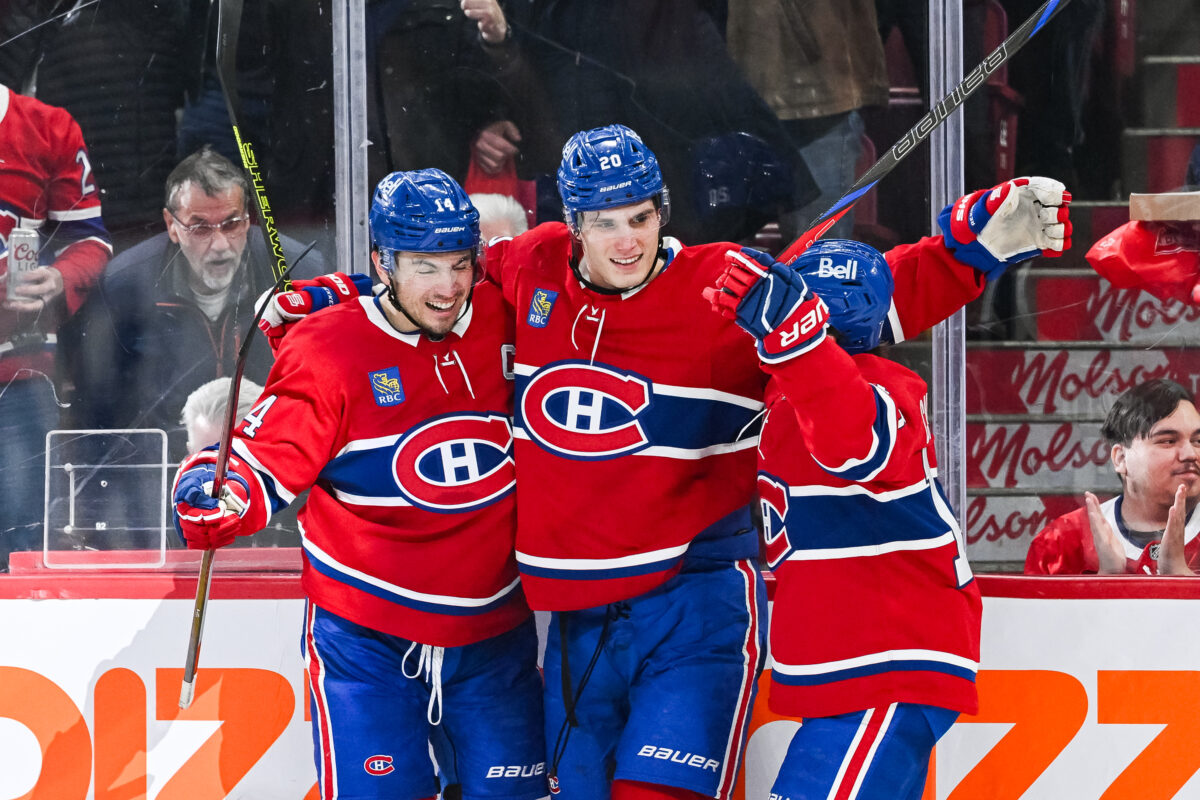The Montreal Canadiens have turned heads early this season, not just because of their youthful lineup or high-end skill, but because they’ve shown a new and refreshing quality: being clutch. Through the first few weeks of play, Montreal has found ways to win tight games, and to do it with flair. It’s been the kind of start that energizes a fan base, strengthens locker-room belief, and perhaps most importantly, signals growth from a team learning how to win.
Finding Ways to Win
For the second straight game, the Canadiens pulled off late-game heroics that would make even seasoned contenders proud. On Thursday night against the Nashville Predators, the Bell Centre was on its feet as Cole Caufield tied the game with only 20 seconds left in regulation. That moment came seconds after defenseman Lane Hutson made a brilliant, game-saving play in his own end before making a long pass to Caufield who scored.
Caufield wasn’t done. Just as he did two nights earlier, the Canadiens’ sniper finished the job in overtime to give Montreal its second consecutive extra-time victory. The young forward now has two overtime goals in as many games.

Two nights earlier, the drama unfolded in a similar fashion. Facing the Seattle Kraken, the Canadiens trailed late in the third period when Ivan Demidov, the talented rookie sensation, tied the game with under three minutes to go. The crowd could feel the momentum shift, and Montreal once again sealed it in overtime.
These aren’t just random lucky breaks; they’re examples of a team refusing to quit. Twice in a week, the Canadiens overcame late deficits. Twice, they found the extra gear needed to close things out. For a young team still establishing its identity, these moments matter deeply.
A Change From 2024-25
The contrast to last season is striking. In 2024-25, the Canadiens were too often on the wrong side of those same games. They finished the season with one of the league’s highest numbers of overtime or shootout losses, seventh-most in the NHL, in fact. Each of those missed points might seem small in isolation, but over 82 games, they add up. For a team that is looking to make the playoffs, those points can make or break a season.
That inability to finish close games was one of the subtle but important flaws in last season’s Habs. They were competitive most nights, but lacked the finishing instinct. Leads slipped away; winnable games turned into heartbreakers.
Related: Canadiens’ Prospects Are Also Off to a Great Start to 2025-26
Now, we’re seeing tangible progress. It’s not that the Canadiens suddenly dominate opponents, they still make mistakes and still find themselves in tight situations, but their response has evolved. Instead of tightening up late, they’ve shown composure. Instead of collapsing after giving up a late goal, they’ve counterpunched. The numbers don’t lie: Montreal has already collected multiple comeback victories in extra time, something they rarely did a season ago.
It’s the sign of a maturing group that’s beginning to understand that every moment, every shift, and every second on the clock can be decisive.
The Process of a Young Team Learning to Win
That learning process isn’t linear. There are setbacks, growing pains, and moments of frustration. But what’s becoming clear this fall is that the Canadiens are starting to turn lessons into results.
Learning to win isn’t just about systems or talent. It’s psychological. It’s about confidence, about belief, about being calm in moments when everything feels chaotic. A young player like Hutson making a game-saving defensive play or Demidov staying poised enough to score late shows the kind of mental progress this group is making. When your core players, Caufield, Nick Suzuki, Hutson, and others are all contributing in key moments, the culture shifts. Winning becomes expected, not surprising.
The players aren’t overthinking late in games; they’re executing with confidence. The team’s energy feels contagious; every late-game chance carries belief rather than desperation.
That’s what makes this version of the Canadiens so exciting. They’re not just fun because of highlight-reel goals or young stars. They’re fun because they’re building an identity rooted in resilience. They’ve shown they can bend without breaking, respond to adversity, and seize momentum when it matters most.
